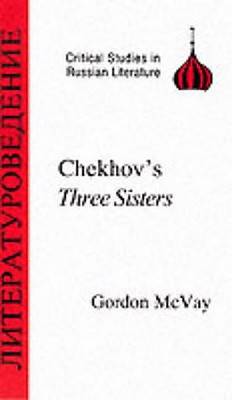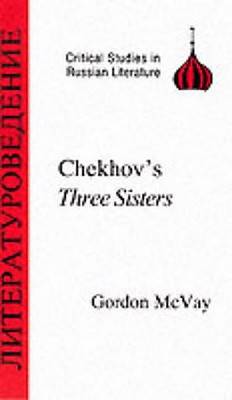
- Afhalen na 1 uur in een winkel met voorraad
- Gratis thuislevering in België vanaf € 30
- Ruim aanbod met 7 miljoen producten
- Afhalen na 1 uur in een winkel met voorraad
- Gratis thuislevering in België vanaf € 30
- Ruim aanbod met 7 miljoen producten
Omschrijving
Chekhov's penultimate play has inspired a bewildering variety of interpretations since its première at the Moscow Arts Theatre on 31 January 1901. Three Sisters has been viewed both as tragedy and as comedy, as a poignant testimony to the eternal yearning for love, happiness, beauty and meaning, and as a devastating indictment of the folly of inert gentility and vacuous day-dreaming. Its characters have been deemed worthy embodiments of the universal 'human condition', keenly experiencing hope, disappointment, frustration, loneliness and the passage of time - or passive products of pre-revolutionary Russian privilege, remnants fit only for the scrap-heap of history. This study analyses the plot, characters and themes of the play, before discussing its reception by Russian and English-language critics, and upon the Russian and British stage.
Specificaties
Betrokkenen
- Auteur(s):
- Uitgeverij:
Inhoud
- Aantal bladzijden:
- 128
- Taal:
- Engels
- Reeks:
Eigenschappen
- Productcode (EAN):
- 9781853993824
- Verschijningsdatum:
- 1/01/1998
- Uitvoering:
- Paperback
- Formaat:
- Trade paperback (VS)
- Afmetingen:
- 139 mm x 216 mm
- Gewicht:
- 217 g

Alleen bij Standaard Boekhandel
Beoordelingen
We publiceren alleen reviews die voldoen aan de voorwaarden voor reviews. Bekijk onze voorwaarden voor reviews.











